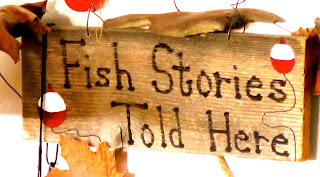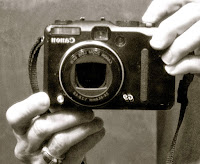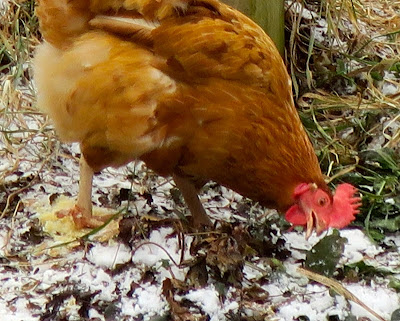 Sometimes stories come to me and such is the following fish story shared with me by the fisherman's wife Linda. Linda is married to Lenny, the eternal sportsman as their home attests. And although their home is filled with numerous trophies of deer heads, both European and American mounted, antlers galore, skulls, pelts and fish, it is an ice fishing story that is going to be shared today.
Sometimes stories come to me and such is the following fish story shared with me by the fisherman's wife Linda. Linda is married to Lenny, the eternal sportsman as their home attests. And although their home is filled with numerous trophies of deer heads, both European and American mounted, antlers galore, skulls, pelts and fish, it is an ice fishing story that is going to be shared today.
I have written before about the guys I've dubbed Ice Nuts. Seriously, who goes out in negative degree weather and sits on ice? Well, Lenny is one of those, and he couldn't live much closer to his second home, the Mississippi.
 |
| Portable shanties in one part of Stoddard Bay, Mississippi backwaters |
When the weather freezes those waters, Lenny will be among the hundreds on the ice. Lenny shared with me some of his fishing gear and I was most impressed with the underwater camera. The lantern looking camera equipped with a light is lowered into the fishing hole. The fisherman then can scout out the fish activity from their shanty with a small remote control that rotates the camera showing its view onto a small tv monitor.
 |
| Here I've captured Linda and myself. |
Last week was a first for Lenny. You see sometimes the unexpected happens.

Lenny's equipment that day included his usual pail of minnows, his jig rods (miniature ice fishing poles) and tip downs. There is also a tip up with a flag that pops but Lenny was using his 'tip downs' the day of the story.
 |
| tip down in beginning position |
 |
| tip up |
 |
| rig rod about 18" in length tipped down |
If you look beneath the reel you see a small dowel that holds the rod in place and allows the rod to tip when the fish takes the bait.
And he also had his fishing grappler stick used to remove the fish from the hole.
Lenny returned to the 2 fishing holes he had made the previous day.
Okay, so here's the story as Linda tells it as told to her by Lenny paraphrased by yours truly.
Lenny was sitting in his shanty as he noticed the tip down was indeed down but by the time he got over to the 18" hole the fish had not only taken the hook, line and sinker but the entire rod too. It's not the first time Lenny has lost a rod to a Northern/Bass (much stronger and larger fish than perch) In fact, many rods have been lost to bigger fish.
It's what happened 2 hours later as he noticed his tip down and went to check on his line. As he reeled it in he noticed something familiar, the bobber on the line was not the one of that rod but his first rod that had disappeared with yes, the very same fish. As
he used his grappler to pull out the fish there attached was his other rod. What are the chances the same fish would return to the same hole? Now that's a great fish story.
 |
| How big was that Northern? |
Now Lenny has a great new fish story and you too have a new one to share.
I didn't need to ask if this was his best catch because these was another sign that answered that question beneath that Fish Stories sign...
Link More about Ice Fishing: FISHING NUTS
 Eloquent, compassionate, articulate, educated, Kennedy states: "This is not right, it is not who we are." "Ladies and gentlemen, have faith, the state of our union is hopeful, resilient, enduring.” For more, click on this link for the Democratic Response .
Eloquent, compassionate, articulate, educated, Kennedy states: "This is not right, it is not who we are." "Ladies and gentlemen, have faith, the state of our union is hopeful, resilient, enduring.” For more, click on this link for the Democratic Response .




























